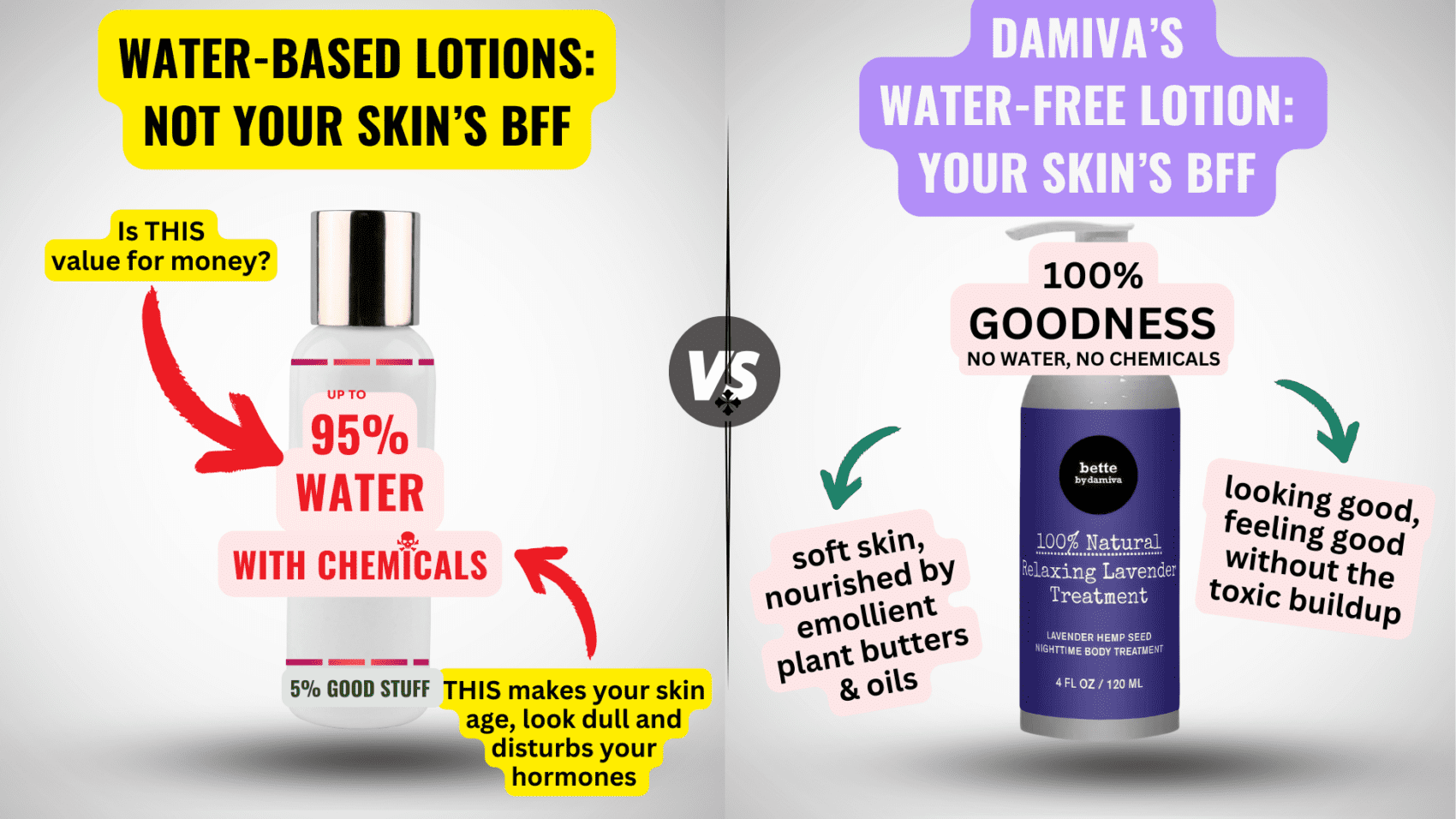Menopause and Self-Compassion
Menopause, often shrouded in mystery and taboo, is a natural phase in a woman’s life that has been misunderstood for generations. The common portrayal of menopause includes hot flashes, mood swings, and irregular periods, but the reality is far more complex and individual. Many women, like June Girvin, find themselves unprepared for the intensity of the symptoms, which can range from severe migraines to emotional upheavals that disrupt daily life. The silence surrounding menopause exacerbates the struggle, leaving women to cope with changes that are often more disruptive than expected. This silence is what we aim to break, shedding light on the true nature of menopause—a transition that is as unique as the women who experience it.
The Importance of Self-Compassion During Transition
As women navigate the unpredictable waters of menopause, self-compassion becomes an essential lifeline. The transition is not merely physical; it encompasses mental and emotional realms, often challenging a woman’s sense of self. Self-compassion involves recognizing that this phase is not a sign of weakness but a period of transformation that requires kindness and patience. It means allowing oneself to seek support, to rest when needed, and to acknowledge the difficulties without self-judgment. Embracing self-compassion can lead to a more gentle and forgiving journey through menopause, as it encourages women to honor their experiences and to care for themselves with the same tenderness they would offer to others.
Objective of the Article
The objective of this article is to provide insight and guidance to women who are approaching or experiencing menopause. By addressing the misconceptions and highlighting the importance of self-compassion, we aim to empower women with knowledge and understanding. This article serves as a beacon, illuminating the path for those who may feel lost in the transition. It is a reminder that while menopause can be challenging, it is also a time of growth and self-discovery. Through shared experiences, evidence-based information, and a focus on personal well-being, we hope to inspire women to approach menopause with grace, strength, and a gentle hand.
Physical Health and Menopause
Preemptive Health Strategies
As women approach menopause, it’s crucial to adopt preemptive health strategies. Understanding that menopause is not a disease but a natural life transition can empower women to prepare their bodies for the changes ahead. Dr. Peta Wright emphasizes the importance of arriving at menopause in good health, which can significantly reduce symptoms. A proactive approach includes regular check-ups, screenings for osteoporosis, heart disease, and diabetes, and being vigilant about any changes in menstrual patterns or new symptoms that may arise.
Diet and Exercise Considerations
With the onset of menopause, women face increased risks of weight gain, diabetes, and heart disease due to hormonal shifts. Dr. Elina Safro and researchers from the University of Sydney recommend a diet low in sugar and refined carbohydrates and high in protein to manage weight and mitigate diabetes risk. Exercise, particularly weight-bearing exercises like walking, running, and strength training, is fundamental in maintaining bone density and muscle mass. Dr. Vanita Rahman suggests incorporating a variety of physical activities that are enjoyable and sustainable over the long term.
Understanding and Monitoring Hormonal Changes
Menopause brings about significant hormonal changes that can affect the entire body. Falling estrogen levels can lead to a range of symptoms and increased vulnerability to several health conditions. It’s essential for women to understand these changes and work with healthcare providers to monitor their hormonal levels. Hormone replacement therapy (HRT), now known as menopause replacement therapy (MRT), can be an effective treatment for severe symptoms, but it’s not suitable for everyone. An individualized treatment plan is vital to weigh the risks and benefits.
Navigating Healthcare and Finding Support
Navigating the healthcare system during menopause can be challenging. Women should seek healthcare providers who are knowledgeable about menopause and can offer a holistic approach to treatment. Support groups and resources like the Australasian Menopause Society can provide valuable information and community support. Additionally, maintaining open communication with healthcare providers and advocating for oneself is crucial in receiving appropriate care and support throughout the menopausal transition.

Recognizing and Responding to Bodily Signals
Identifying Menopausal Symptoms
Menopause is a natural transition in a woman’s life, but it can come with a host of symptoms that may be confusing and sometimes frightening. Symptoms can range from hot flashes, night sweats, and sleep disturbances, to irregular periods, mood swings, and cognitive changes. It’s crucial to recognize that these are typical signs of hormonal shifts occurring in the body. Understanding that these symptoms are a normal part of the transition can alleviate concerns and help women seek appropriate remedies and support.
The Role of Hormone Replacement Therapy
Hormone Replacement Therapy (HRT) has been a subject of debate for many years. HRT can be incredibly effective in alleviating menopausal symptoms, particularly for those who experience them severely. However, it’s not without risks and is not suitable for everyone. The decision to use HRT should be made on an individual basis, considering factors such as personal health history and symptom severity. It’s also important to note that the timing of initiation may play a crucial role in its effectiveness and safety.
Advocating for Proper Medical Attention
Women must advocate for themselves when seeking medical attention for menopausal symptoms. It’s not uncommon for symptoms to be misdiagnosed or dismissed. Being informed about menopause and its effects on the body can empower women to engage in open dialogues with their healthcare providers. Seeking a provider who is knowledgeable about menopause and who listens to and respects your experiences is essential. Remember, you have the right to a healthcare provider who partners with you in your care and supports you through this transition.
Mental and Emotional Well-being
Psychological Impact of Menopause
Menopause is not just a series of physical changes; it’s a profound psychological journey as well. The fluctuating hormones can trigger a cascade of emotions, from anxiety to a sense of loss. It’s common to feel a mourning for the fertility and youth that menopause symbolizes the end of. This psychological impact is often compounded by the societal stigma around aging in women, which can lead to feelings of invisibility or irrelevance. Understanding that these feelings are a normal part of the transition can be the first step in managing them.
Coping with Anxiety, Depression, and Mood Swings
The hormonal upheaval during menopause can lead to increased anxiety, depression, and mood swings. It’s essential to recognize these symptoms and understand that they are not a sign of weakness, but rather a natural response to your body’s changes. Strategies to cope with these emotional fluctuations include:
- Regular physical activity, which can boost mood and reduce stress.
- Practicing mindfulness or meditation to stay grounded.
- Seeking out social support from friends, family, or support groups.
- Considering therapy or counseling to develop coping strategies.
Memory Challenges and Cognitive Changes
Many women report experiencing ‘brain fog’ or memory lapses during menopause. These cognitive changes can be distressing, but they are typically temporary. To combat these challenges:
- Engage in mental exercises like puzzles or learning a new skill.
- Ensure you’re getting enough sleep, as fatigue can worsen cognitive issues.
- Maintain a balanced diet rich in omega-3 fatty acids, which support brain health.
Seeking Help and Building Support Systems
Building a robust support system is crucial during menopause. This can include:
- Finding a healthcare provider who understands menopause and takes your concerns seriously.
- Connecting with other women going through menopause, whether in person or online.
- Considering joining or starting a menopause support group.
- Exploring resources from reputable organizations dedicated to women’s health during menopause.
Remember, seeking help is a sign of strength, not weakness. By acknowledging the mental and emotional challenges of menopause and taking proactive steps to address them, you can navigate this transition with greater ease and self-compassion.
Navigating Relationships During Menopause
The Importance of Partner Support
Menopause is not a solitary journey, and the role of a supportive partner cannot be overstated. During this transition, women may experience a myriad of symptoms that can be bewildering not only to themselves but also to their partners. Understanding and empathy from a partner can significantly alleviate the emotional burden. It’s beneficial for partners to educate themselves about menopause, its symptoms, and the potential impact on mood and physical intimacy. Attending medical appointments together can foster a team approach to managing menopause, ensuring both partners are informed and aligned in their support.
Communicating with Family Members
Menopause can affect family dynamics, particularly if symptoms like mood swings or depression arise. Open communication is key to helping family members understand that these changes are part of a natural biological process. It’s important to reassure children that they are not to blame for any emotional outbursts and to explain that patience and understanding are needed during this time. Sharing age-appropriate information can demystify menopause and foster a supportive home environment.
Maintaining Social Connections
Isolation can exacerbate the challenges of menopause, making social support crucial. Maintaining friendships and social networks provides a valuable outlet for sharing experiences and receiving encouragement. Engaging in social activities can also offer distraction and relief from menopausal symptoms. It’s important to prioritize these connections, even when energy levels may be low, as they contribute significantly to overall well-being.
In conclusion, navigating relationships during menopause requires open communication, education, and a willingness to seek and offer support. By fostering understanding within personal relationships and maintaining social connections, women can create a supportive network that eases the transition through menopause.
The Postmenopausal Horizon
Challenging Negative Stereotypes
Postmenopause often carries with it a host of negative stereotypes that can undermine a woman’s sense of self-worth and potential. Society tends to paint this phase with a broad brush of irrelevance or invisibility, suggesting that once a woman’s reproductive years are behind her, so too is her vibrancy and value. It’s critical to confront these misconceptions head-on. By challenging these stereotypes, we can redefine what it means to be postmenopausal: it’s not an end, but rather a new chapter brimming with opportunities for personal growth, wisdom, and fulfillment.
Embracing the Postmenopausal Phase
Embracing postmenopause is about recognizing the unique strengths and freedoms that come with this stage of life. With the cessation of menstrual cycles and the hormonal rollercoaster that often accompanies perimenopause, many women report a newfound sense of stability and clarity. It’s a time to celebrate the wisdom accrued from years of life experience and to harness that knowledge in pursuit of passions old and new. Embracing postmenopause means acknowledging that while the body may have changed, the individual’s capacity for joy, creativity, and achievement remains boundless.
Sharing Experiences and Encouragement
One of the most powerful ways to navigate the postmenopausal horizon is through sharing experiences. By opening up about the journey through menopause, women can offer invaluable support and encouragement to those who are just beginning or are in the midst of their transition. Sharing stories not only fosters a sense of community but also helps to dispel myths and educate others about the realities of menopause. Whether it’s through support groups, online forums, or casual conversations, the act of sharing can be profoundly empowering and can help to build a more positive narrative around postmenopause.
In conclusion, the postmenopausal horizon is not a descent into obscurity but a stage rich with potential. By challenging negative stereotypes, embracing the changes, and sharing experiences, women can navigate this transition with grace and confidence. The postmenopausal phase is an opportunity to redefine oneself, to pursue new interests, and to continue contributing to society in meaningful ways. It’s a time to be gentle with oneself, recognizing that this is not an end, but a continuation of life’s incredible journey.

THEN IT CONTAINS TOXIC CHEMICALS. WHY RISK IT GETTING SICK? GO CHEMICAL FREE.
Self-Care and Personal Growth
Developing a Self-Care Routine
Embarking on the journey through menopause can be likened to setting sail on uncharted waters. To navigate this voyage, establishing a self-care routine is paramount. Self-care is not an indulgence; it is a discipline. It involves identifying your own needs and taking steps to meet them. It is about taking proper care of yourself and treating yourself as kindly as you treat others. Crafting a routine might include setting aside time for physical activity, ensuring adequate rest, and engaging in stress-reducing practices such as meditation or yoga. Remember, what works for one person may not work for another, so it’s important to listen to your body and adjust your self-care practices accordingly.
The Power of Saying No and Prioritizing Needs
Menopause is a time when your body demands respect for its new limits and boundaries. Learning to say no is a skill of self-care. It’s about honoring your energy levels and recognizing your priorities. Saying no to others can sometimes mean saying yes to yourself. This might involve declining social invitations when you need rest, or stepping back from responsibilities that no longer align with your capacity. Prioritizing your needs isn’t selfish; it’s necessary for maintaining your well-being during this transformative time.
The Transformative Effect of Menopause on Self-Perception
Menopause can significantly alter how you see yourself. It’s a period of life that can challenge your identity and self-perception. As your body changes, so might your sense of self. This transformation is not just physical but deeply emotional and psychological. Embrace this as an opportunity for personal growth and renewal. You may discover new interests, strengths, and aspects of your personality that were previously overshadowed by the roles you played. This is a time to redefine and rediscover who you are and what you want from life.
Continual Self-Kindness and Acceptance
Throughout menopause, practicing self-kindness and acceptance is crucial. It’s easy to be critical of the changes your body is going through, but it’s important to offer yourself compassion. Acceptance doesn’t mean resignation; it means acknowledging your current state without judgment and with a lot of kindness. This might involve changing the way you talk to yourself when you experience symptoms or setbacks. Use gentle words, allow for rest, and remind yourself that menopause, like any other phase of life, is a natural process. Celebrate your body for all it has accomplished and continues to do. Forgive yourself for not being ‘perfect’ and recognize that there is profound beauty in the wisdom that comes with age.
In conclusion, as you navigate the waters of menopause, remember to be your own lighthouse—guiding yourself back to safety with self-care, setting boundaries, embracing change, and practicing kindness and acceptance. This journey is uniquely yours, and how you choose to walk it can make all the difference in your experience and growth.












